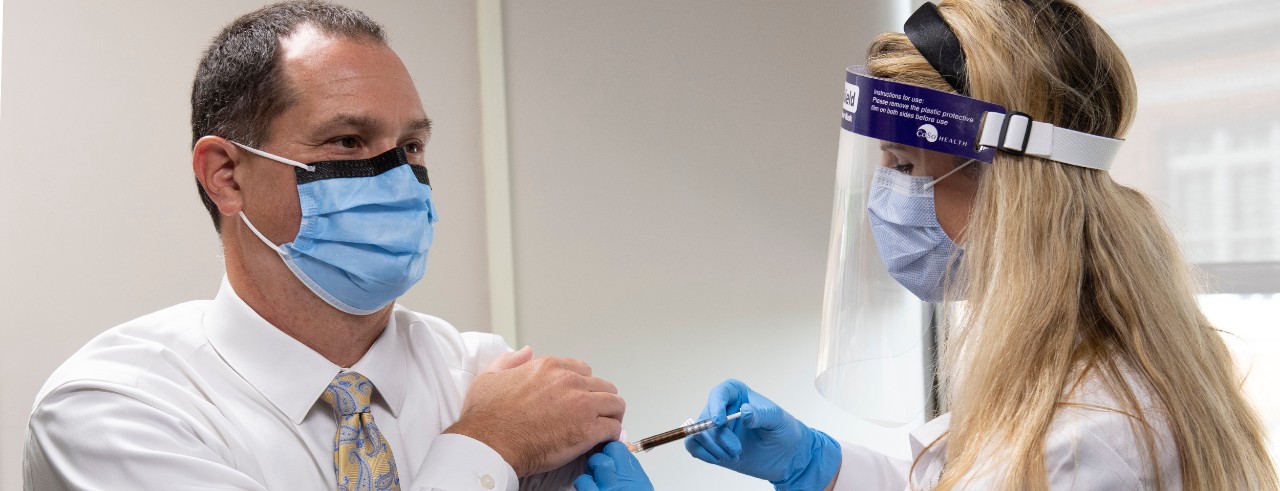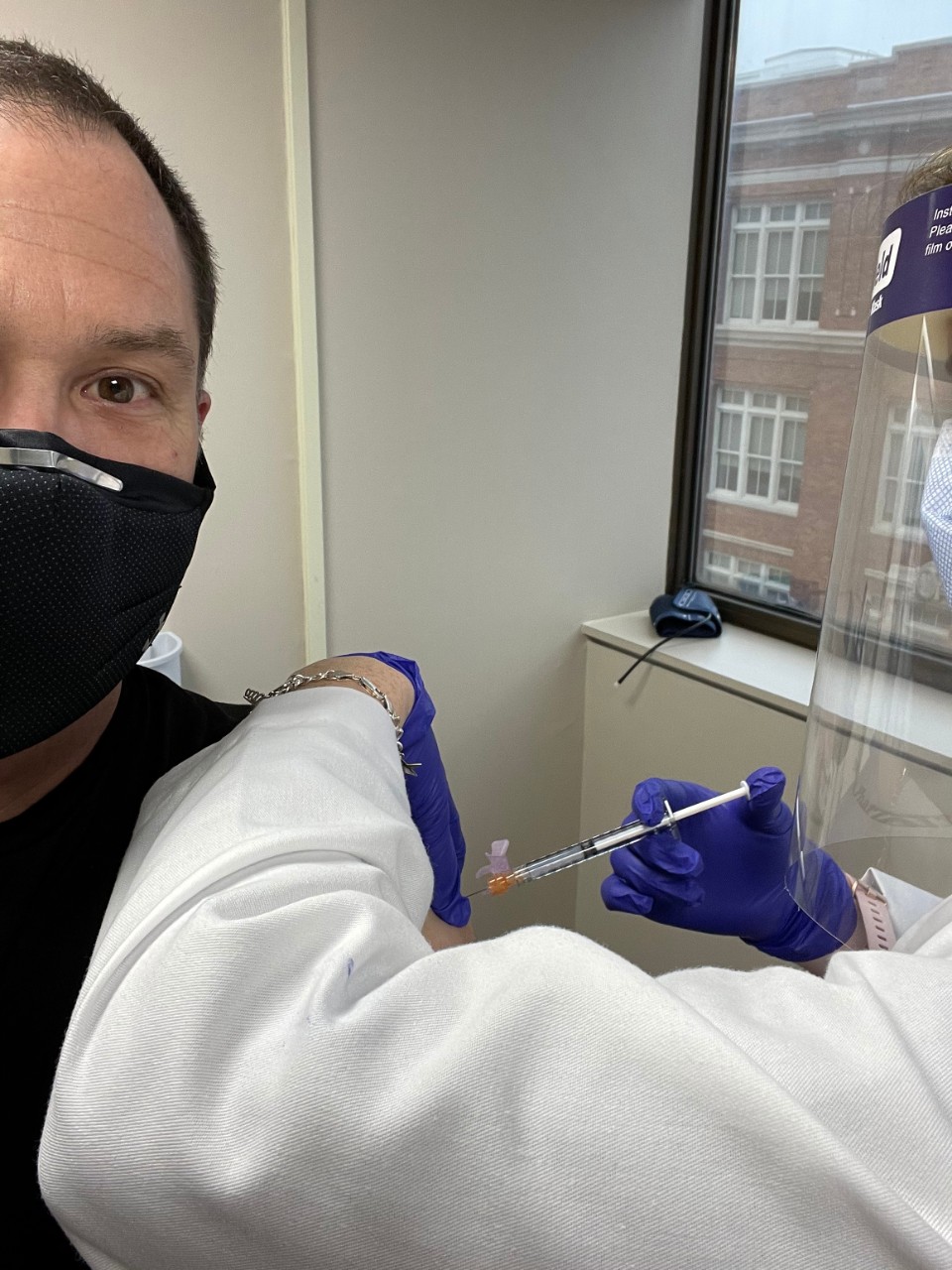
'I'm a believer': UC dean for research takes next step in COVID-19 trial
Media outlets highlight journey through the COVID-19 vaccine clinical trial process
When asked if he thought he received a placebo or the real deal in the COVID-19 vaccine clinical trial, sponsored by Moderna, Brett Kissela, MD, said he was pretty sure he wasn't getting the true vaccine.
"I had a few weird, unrelated reactions, but I was suspicous that it was placebo because I didn't have arm pain like I do with the flu vaccine," says the senior associate dean for clinical research at the University of Cincinnati College of Medicine and chief of research services at UC Health. "I was hoping I got the real thing, so that I could be done with the process. In clincial trials, subjects often incorrectly guess whether or not they receive the treatment or the placebo. However, when you start looking for symptoms, you'll often find them. So ultimately, I just wasn't sure."
On Tuesday, Kissela participated in his unblinding meeting at Holmes Hospital, located on UC’s medical campus. It's a meeting where investigators and participants in a clinical trial are made aware of what treatment is being delivered. Participants in this trial had a 50/50 chance of getting the actual vaccine, versus a placebo.
When Kissela was told he received the placebo, and was then was offered the real vaccine, he took advantage of the opportunity.
I’m a believer. The science is very sound, and even though the [Food and Drug Administration] has not formally approved the vaccine, I surely would encourage people to receive it.
Brett Kissela, MD

Brett Kissela, MD, senior associate dean for clinical research at the UC College of Medicine and chief of research services at UC Health, takes a selfie while he gets his first dose of the Moderna vaccine. He learned during an unblinding meeting for the clinical trial that he previously received a placebo. Photo provided
"I’m a believer," he says. "The science is very sound, and even though the [Food and Drug Administration] has not formally approved the vaccine, I surely would encourage people to receive it.
"The level of detail and structure that goes into a clinical trial to ensure its safety and efficacy is incredible. And while there is some risk involved, you're doing it to help humanity. I wanted to help prove that the Moderna vaccine works." The FDA has approved this vaccine under emergency authorization.
He adds that when particpants are enrolled in trials, they get extra attention dedicated to their health.
"I'm a teeth grinder, and I actually fractured a tooth after my second injection," he says. "This led to a lot of paper work by clinical trial staff because they're watching carefully for any possible side effects of the vaccine. You receive an incredibly high level of medical attention when you are in a clinical trial. This is a signficant benefit to being in one."
He spoke to Local 12 about why he decided to step up to the plate for science and about vaccine hesitancy from frontline health care workers.
Watch the full Local 12 report.
Read more about Kissela's participation in the clinical trial.
Local 12 also spoke to Kissela about "long-haulers," patients with COVID-19 that have lasting complications.
Watch the full Local 12 report.
Featured photo of Kissela receiving the first dose in the clinical trial by Colleen Kelley.
Impact Lives Here
The University of Cincinnati is leading public urban universities into a new era of innovation and impact. Our faculty, staff and students are saving lives, changing outcomes and bending the future in our city's direction. Next Lives Here.
Stay up on all UC's COVID-19 stories, or take a UC virtual visit and begin picturing yourself at an institution that inspires incredible stories.
Related Stories
OTR mural celebrates UC alumni success
April 4, 2025
The UC Alumni Association, UCAA, will mark its annual Alumni Celebration during its upcoming Alumni Week, April 7-13, with a community art project commemorating this year’s slate of alumni honorees receiving the organization’s top awards.
Study: Platform-predicted treatments improve outcomes for...
April 4, 2025
Results from a new Phase 3 trial published in the journal npj Precision Oncology found that an assay that includes an assessment of cancer stem cell sensitivity to chemotherapy can accurately decide more effective treatments and lead to increased outcomes for patients with platinum-resistant ovarian cancer.
Pediatrician celebrates 30th UC College of Medicine reunion with...
April 3, 2025
There’s a vital thread woven into the fabric of Chris Peltier’s life. It’s black and red, and it knits all things Bearcat together into a life that was transformed by the University of Cincinnati and the UC College of Medicine.
